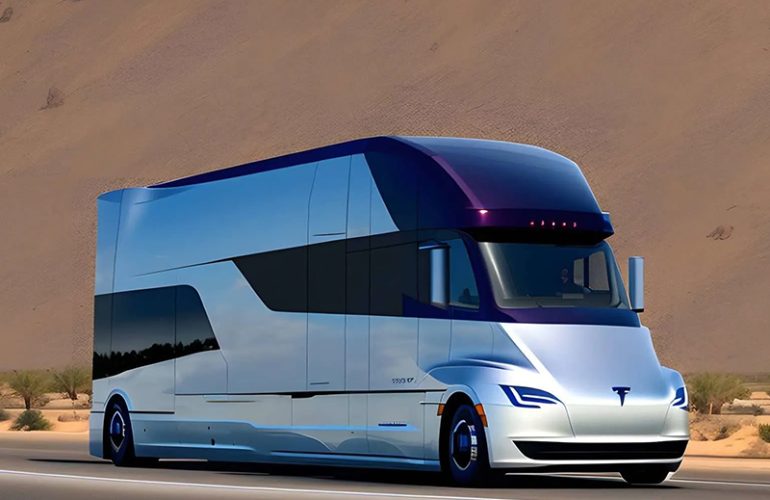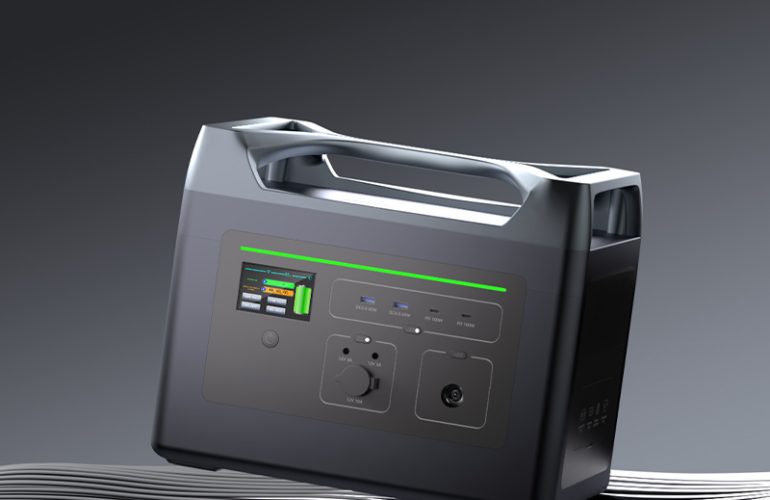The 48V lithium-ion battery is a cutting-edge energy storage solution that has gained significant popularity in various industries.The 48 volt lithium ion battery is one of the most popular models of battery that has been gaining massive traction lately. Those who have not heard about this battery may wonder what it is, why it’s so special, and most importantly, its benefits.
9-year professional lithium ion battery manufacturers, 10-year warranty on battery packs, using the best BMS protection board, protecting the lithium battery pack from overcharge, overdischarge, overcurrent, short circuit, etc, with excellent self-discharge rate. Configurable Bluetooth, can be connected in series and parallel. The heating function and other special functions can also be customized. Enough stock for the series of 48v lithium ion battery like48v lithium ion battery 200ah、48v lithium ion battery 100ah .
Best 48V Lithium Battery Pack:
-
Sale!
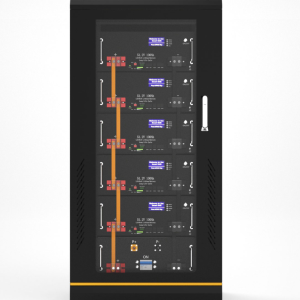
48V Lithium Battery 500Ah
$5,479.00Original price was: $5,479.00.$5,438.00Current price is: $5,438.00. Enquiry -
Sale!
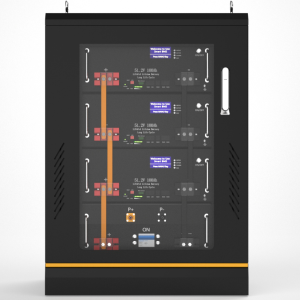
48V Lithium Battery 300Ah
$2,389.00Original price was: $2,389.00.$2,356.00Current price is: $2,356.00. Enquiry -
Sale!
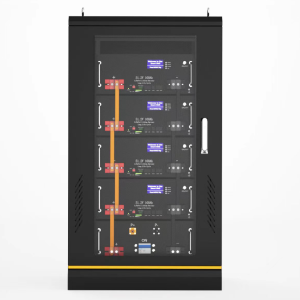
48V Lithium Battery 400AH
$462.00Original price was: $462.00.$423.00Current price is: $423.00. Enquiry -
Sale!
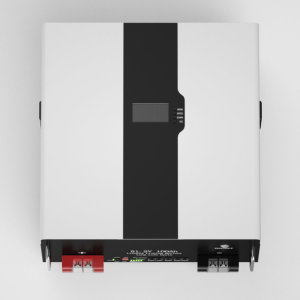
48V 100AH Wall Mounted Lithium Battery
$1,789.00Original price was: $1,789.00.$1,689.00Current price is: $1,689.00. Enquiry -
Sale!
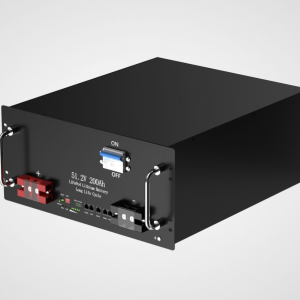
48V Lithium Battery 200AH
$635.00Original price was: $635.00.$612.00Current price is: $612.00. Enquiry -
Sale!
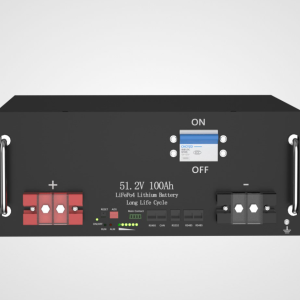
48V Lithium Battery 100Ah
$563.00Original price was: $563.00.$498.00Current price is: $498.00. Enquiry
What is a 48-volt lithium battery?
A 48-volt lithium-ion battery comprises 16pcs 3.2V lifepo4 cells, which adopts lithium iron phosphate as cathode material. People also call the 48V lithium battery pack a 51.2v lithium-ion battery. The main function of the lithium-ion battery is for power storage. This type of battery is high density, smaller in size, and lighter than other types of battery. The DOD (depth of discharge) is up to 100%, so it can discharge more power than other battery. 48V volt lithium-ion battery is popular because most storage home system is 48V.
Who can use a 48-volt lithium-ion battery in many applications, including energy storage solutions, UPS power banks, Telecommunication power systems, home appliances, etc.?
The following are the advantages of 48V lithium-ion battery over lead-acid battery:
- Small in size
- Light in weight
- Great temperature adaptability
- High charging and discharging efficiency
- Remarkable protection
- Long service life
- Energy savings
- Environmental protection.
What is the Technology Used to Develop the 48V Lithium Ion Battery?
The 48V Lithium Ion Battery is used to charge and recharge electronic devices. Due to its small weight, high – power density, and capability to recharge, this innovation is becoming more common in everything from computers and mobile phones to types of electric vehicles. The 48V Lithium Ion Battery is a portable energy source used for electrical power gadgets.They are utilized in surgical instruments, electric automobiles, and electronic gadgets. Although humanity has progressed much technologically speaking, the old good lithium battery never fail to provide longevity.
48V Lithium Battery Specifications:
Cylindrical cells with Lithium Iron Phosphate (LiFePO4) technology are used to make a 48V Lithium Ion Battery that is very durable. It also has a capability that is more than twice while weighing half as much and taking up half the space. Each battery has a nominal voltage of 51.2V and may be coupled in series (4S max) or parallel (16P) to generate operating voltages between 48V and 192V. In terms of energy output, it is 98% efficient. The temperature varies from -20°C to +60°C, and the relative humidity is 60%.
Application of 48V Lithium Battery:
The 48 Lithium Ion Battery is versatile and extendable, allowing it to be modified in various sectors such as transportation, solar, cars, agriculture, and other similar fields of interest.
48v Lithium Ion Battery E-bike
A 48V Lithium Ion Battery is standard on many electrical vehicles. This Lithium Ion Battery is also known as an E-bike lithium battery pack, one of the most widely available battery types. Many electric bikes users desire to know how far they’ll go on a 48V Lithium Ion Battery, and the following provides you with an evaluation of that. The energy source of the 48V 20AH E-bike battery is 48V 20Ah = 960WH (Watt Hours). The “Last Time” for a 450W motor is 960WH 450W = 2.13 hours.There are a variety of variables that affect mileage, but in general, the ideal number can be utilized for 2.13 hours at full capacity under ideal conditions. Climbing, changing loads, and so forth are examples of such activities.
48v Lithium Ion Battery Solar
The 48V Lithium Ion Battery is common in low-wattage solar applications that need more time between charges. They are constructed with the most advanced technology, leading in superior intrinsic stability, good float and service lifetime, and a low total expense of maintenance. The 48V Lithium Ion Battery is a wonderful alternative for a power system or, the light of the fact, supercapacitors for your household solar system.
48v Lithium Ion Battery Golf cart
A 48V Lithium Ion Battery has several advantages for golf cart battery. Significant weight reductions, enhanced battery construction, a greater range of charging and discharging cycles, and quicker refilling are all included. When it comes to getting power from electric engines, Lithium-ion battery are the best thing.The price difference between a 48V Lithium Ion Battery golf cart pack and a 48V lead-acid battery pack will not stay the same forever because lithium-ion battery are more expensive. 48V lithium-ion battery save both cash and effort in the long term.
48v Lithium Ion Battery for Electric Scooter
Because of its large capacity and high-power efficiency, the 48v Lithium Ion Battery delivers much power for its size. As a result, the battery has a long lifespan, which means the battery use it several times before recharging or “cycling” in scooters.
How Long Does a 48 Volt Battery Take to Charge?
Two things affect how long it takes to charge a 48v Lithium Ion Battery: how big it is and how much power it has. Suppose you have a 48V Lithium Ion Battery that has a 20Ah capacity. The theoretical charging period for a 48V 2A charger is 10 hours, which equals 20ah/2a=10h.
The continual current setting switches to consistent voltage control throughout charging in the procedure. It takes a very long time to complete the final charge. It typically takes approximately three hours to do this job, though. Additionally, it takes four hours to charge with a 48V 5A charger since 20Ah/5A=four hours, but time is also required to flow back the charge. It will take around five hours to complete the work.
How to Maintain the 48V Lithium battery?
The usage and maintenance of a 48v lithium-ion battery need regular maintenance and caution. Here are a few suggestions for keeping your 48v Lithium Ion Battery in good condition.
- Maintain the temperature of your battery at room temperature.
- When storing a 48v Lithium Ion Battery for a long time, drain it to roughly 40% and keep it in a dry environment.
- For your safety, do not charge a 48v Lithium Ion Battery that has been severely drained for a long time.
- To prevent entire discharges, allow moderate discharges.
- A 48v Lithium Ion Battery is a better rechargeable battery investment than an ordinary alternative.
48V Lithium Ion Battery Advantages:
- High Efficiency: 48V lithium-ion battery offer high energy conversion efficiency, minimizing energy losses during charging and discharging.
- Environmentally Friendly: They are an eco-friendly alternative to traditional lead-acid battery, as they do not contain harmful substances like lead or acid.
- Enhanced Performance: These battery deliver stable voltage throughout their discharge cycle, ensuring consistent performance.
- Modular Design: The modular nature of these battery allows for scalability and flexibility in system design and integration.
- Reduced Maintenance: Compared to lead-acid battery, 48V lithium-ion battery require minimal maintenance, eliminating the need for regular water top-ups or equalization charging.
48V lithium-ion battery offer a number of advantages over other battery types, including a longer lifespan, higher energy density, and lower self-discharge rate.
Rechargeable lithium iron battery have a finite life and, over time, will lose their ability to hold a charge. Once your battery has lost its capacity, it is permanent. Therefore, it is very important to properly care for and maintain your lithium battery.
An estimated life expectancy of a lithium iron battery is 5-15 years, depending on usage. LiFePO4 will provide up to 2000 complete charging cycles or as many as 6000 partial cycles! A complete charging cycle uses the battery from fully charged to fully discharged and then fully recharged. Leaving your battery unused for long periods can hinder the life of the battery and ultimately lead to a failed battery if left too long.
We recommend that all lithium battery and cells not-in-use go through at minimum one full maintenance cycle (charge to 100% SoC (state of charge), discharge to 100% DoD (depth of discharge), charge to 50% SoC) once every 6-12 months to maintain the battery’s capacity. Please check battery and cells in storage for adequate OCV (open circuit voltage). Use the table below to determine the minimum recommended voltage for storage. If during your maintenance check-up and the voltage is below this value, Flykol recommends re-charging your battery to the top of the voltage ranges found below.
When checking cells or battery semi-annually for voltage, please inspect for terminal corrosion and case integrity. Do not use any battery or cell that appears damaged.No matter how well you maintain and store your battery, LiFePO4 battery will continue to self-discharge slowly while in storage and not in use. If your battery has a feature like Bluetooth, the self-discharge rate will be higher due to the draw of the Bluetooth module. Checking your battery’s charge periodically will continue to keep your battery in better health and produce more energy for your application.
A Battery Management System (BMS) is an integral part of the 48V lithium-ion battery setup. It monitors the battery’s parameters, such as voltage, current, and temperature, to ensure safe and efficient operation. The BMS also provides functions like cell balancing, overcharge/over-discharge protection, and state-of-charge estimation.
48V Lithium-ion Battery use Precautions:
1. Lithium-ion battery stored for a long time without use, should be maintained at 50%-60% charge state, should be replenished once every 3 months, and should be charged and discharged once every six months.
2. During transportation, care should be taken to prevent moisture and humidity, and avoid extrusion and collision to avoid damage to the lithium-ion battery.
3. In low temperature, it should not be lower than 0°C. Storage at a temperature of 5°C to 10°C is optimal.
4. Prohibit the use or placement of lithium-ion battery under high temperatures (hot sunlight or very hot car), otherwise, it may cause battery overheating, fire or functional failure, shortened life.
5. Prohibit storage in places with strong static electricity and strong magnetic fields, otherwise it is easy to destroy the battery safety protection device, bringing unsafe hidden danger.
6. If the lithium-ion battery emits an odor, heat, discoloration, deformation or any abnormalities that occur during use, storage or charging, immediately remove the battery from the device or charger and discontinue use.
7. In the case of lithium-ion battery, a monthly power loss of 3% to 5% is possible. Self-discharge is temperature-dependent and will be higher as the temperature rises.
8. Complete discharge is the “squeezing” of a battery until it no longer produces any current. Squeeze out any current. In this case, the voltage will drop to 0 volts. If this state is maintained. A chemical reaction occurs at the electrodes of the battery, rendering it partially or completely unusable.
9. Lithium-ion battery can be used in the temperature range of 10°C to +55°C. However, charging can only be done at a battery temperature of +5°C to +45°C.
48V Lithium-ion Battery Can Not Be Charged into How To Do?
- Whether the solar panel output parameters are normal, voltage, current, etc.
- Whether the charger line is normal, whether the connector is disconnected
- Whether the 48V lithium battery is bad, you can test whether the open-circuit voltage of the battery is normal.
The Best 48V Lithium Ion Battery manufacturers:
In addition, since lithium-ion battery have greater energy efficiencies than lead-acid battery, they can be considerably smaller while maintaining the same storage space. Flykol is the ideal lithium ion battery company to work with to provide the best 48v Lithium Ion Battery.
When the top 48V Lithium Ion Battery manufacturer uses A-class cells in Lithium Phosphate technology, a high level of safety is ensured (LiFePO4 or LFP). In cost-effectively replacing lead-acid battery, the Flykol series has been developed to provide a triple power efficiency in a package with a comparable mass and volume.
48V Lithium-ion Battery vs. Lead-acid Battery
With modern home power storage systems, you have a choice between two battery technologies: lead-acid and lithium-ion battery. Which one you choose depends on your personal preference. Both technologies have their advantages and disadvantages.
Energy density by weight
At present, the energy density of lithium battery is generally 200~260wh/g, while that of lead-acid is generally 50~70wh/g. The weight energy density of a lithium battery is 3~5 times that of lead-acid, which means that the capacity of lithium battery is three to five times stronger than that of a lead-acid battery under the same weight, so lithium battery has an absolute advantage in energy storage.
Volume energy density
Since the volume energy density of a Li-ion battery is usually about 1.5 times that of a lead-acid battery, a Li-ion battery is about 30% smaller than the lead-acid battery in the same capacity.
Service life
The most popular lithium battery materials are lithium ternary and lithium iron. For example, ternary lithium battery usually have 1000 cycles, LiFePo4 battery have more than 2000 cycles, and lead-acid battery usually have 300-350 cycles. Then it means that the life of lithium battery is about 3-6 times that of lead-acid battery.
Price Cost
Lead-acid battery are currently cheaper than lithium battery, which are about three times more expensive than lead-acid battery. However, by lifetime analysis, lithium battery have a longer life if the same cost is used.
Environmental Protection
Lead-acid battery are very polluting, while lithium battery are relatively greener in terms of production and recycling.
Frequently Asked Questions:
How long does a 48V lithium-ion battery last?
The lifespan of a 48V lithium-ion battery depends on various factors such as the quality of the battery, usage patterns, operating conditions, and maintenance practices. Generally, a well-maintained lithium-ion battery can last anywhere from 5 to 15 years. It’s important to note that the battery’s capacity will gradually degrade over time, leading to reduced runtime.
Can I use a 48V lithium-ion battery in parallel configurations?
Yes, it is possible to use 48V lithium-ion battery in parallel configurations. Parallel connection allows for increased capacity and power output. However, when connecting battery in parallel, it’s crucial to ensure they have similar characteristics, including voltage, capacity, and state of charge. Additionally, a proper battery management system (BMS) should be in place to monitor and balance the battery during charging and discharging.
Are 48V lithium-ion battery safe for indoor use?
Yes, 48V lithium-ion battery are generally safe for indoor use. They are designed with safety features such as overcharge and over-discharge protection, short circuit protection, and thermal management systems to prevent hazards. However, it’s important to follow manufacturer guidelines regarding installation, ventilation, and maintenance to ensure safe operation.
How do I dispose of a 48V lithium-ion battery properly?
Proper disposal of 48V lithium-ion battery is essential to minimize environmental impact. These battery should not be thrown in regular trash or incinerated. Instead, they should be recycled at designated battery recycling facilities or through authorized recycling programs. Many manufacturers and retailers offer battery recycling services. Contact local recycling centers or check with the battery manufacturer for guidance on proper disposal methods in your area.
What is the typical charging time for a 48V lithium-ion battery?
The charging time for a 48V lithium-ion battery depends on several factors, including the battery capacity, charger specifications, and charging current. Generally, lithium-ion battery can be charged to 80% of their capacity relatively quickly, within 1-2 hours. However, reaching a full charge (100%) may take an additional 2-4 hours. It’s important to use a compatible charger and follow the manufacturer’s recommendations for charging to ensure safe and efficient charging.
Can I retrofit my existing lead-acid battery system with a 48V lithium-ion battery?
Yes, it is possible to retrofit an existing lead-acid battery system with a 48V lithium-ion battery, but it requires careful consideration and planning. Since lithium-ion battery have different voltage characteristics and charging requirements compared to lead-acid battery, the system’s charging infrastructure, monitoring systems, and control circuitry may need to be modified or replaced. It is recommended to consult with a qualified professional or the battery manufacturer to assess the feasibility and compatibility of retrofitting your specific system.
How many hours does a 48V lithium battery last?
Ebike Battery 48V 13AH has 625Watt power meaning that a 250Watts motor with a 48v ebike battery at 13AH will drive for 2.5 – 3 hours at full throttle without stopping or in other words 40+ miles.
Is a 48V lithium-ion battery better than lead acid?
What is the difference between lithium ion battery and lead acid battery? The difference between lithium ion and lead acid battery are the different materials they are made out of. While more expensive, lithium ion battery are more efficient and have a higher capacity than lead acid battery.
What is the full charge of a 48V lithium-ion battery?
48V LiFePO4 battery are fully charged at 58.4 volts and fully discharged at 40 volts.
How many solar panels do I need to charge a 48V lithium battery?
When charging 48V battery, the system will need a string of at least 2 panels in series but will perform much better with 3 or more panels in series, depending on the maximum voltage of the charge controller.
How Long will A Fully Charged 48V Lithium-ion Battery Run My Home?
The range of a 48V Li-ion battery is related to the capacity of the battery itself (Ah) and the total power of the household appliances (W). Assuming you are using a 48V 200Ah solar home battery and the total power of the household appliances is 1800W, then the running time of your home is 48V*200Ah/1.8kW=5.3h.


